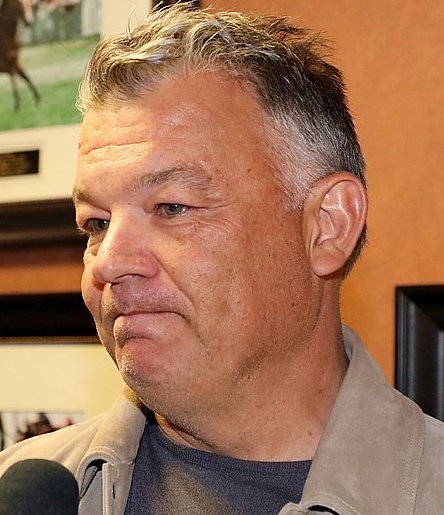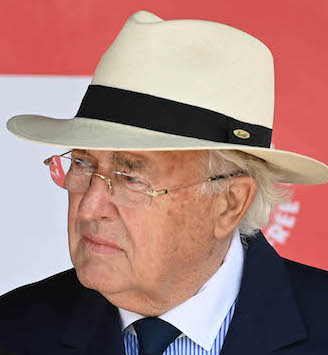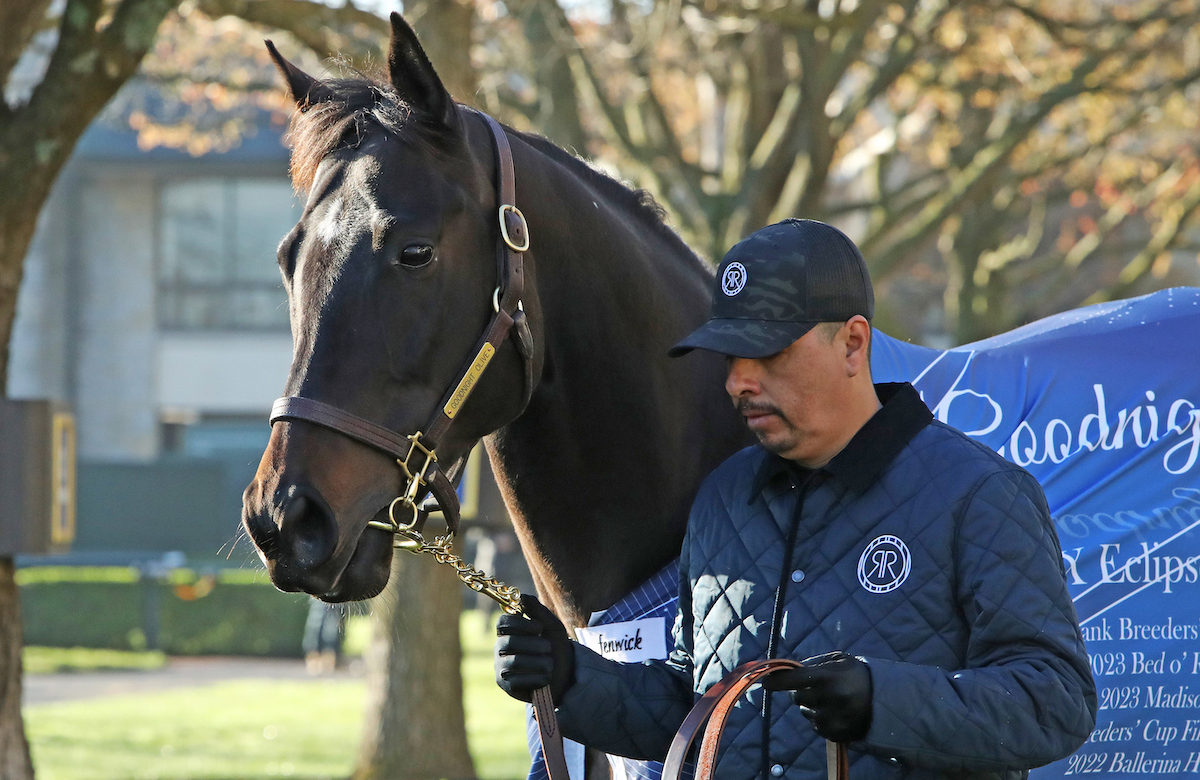
Our questions are answered by Resolute Racing supremo, who is making a major splash in the bloodstock world and will be represented by Just A Touch in the Kentucky Derby
 Resolute Racing founder John Stewart has been on a whirlwind spending spree since he announced himself as a new major player in the bloodstock world at the Keeneland Sales last September.
Resolute Racing founder John Stewart has been on a whirlwind spending spree since he announced himself as a new major player in the bloodstock world at the Keeneland Sales last September.
Stewart, 55, went on to spend over $25 million during the US sales season, added Breeders’ Cup winners Goodnight Olive and Pizza Bianca to his broodmare band, then splashed out on a farm to put them on, buying Shadwell’s Shadayid Stud in Midway.
Make no mistake, Stewart means business. He has worked his way up from a $10 an hour production line worker on the night shift at Toyota, to running the company’s operation in Britain before switching into private equity.
He formed his own business, MiddleGround Capital, which employs more than 150 staff and has offices in Lexington, New York and Amsterdam, while his bloodstock and racing interests reside in Resolute Racing.
Didia: Pegasus Filly & Mare Turf winner has joined Resolute string. Photo: Gulfstream Park
“We are a breeding and racing operation,” he says. “I’ve been fortunate to have a business which has been very profitable. I do want to make money and I will make money with the operation.”
Stewart recently added Pegasus Filly & Mare Turf winner Didia to his distaff collection. “I want to have the best broodmare band on the planet,” he explains. “If you have the best broodmares you can get into all the stallions.
“I am not going to stand stallions. I want to build a complex similar to what you see for stallions, that is actually for broodmares.”
Which racing figure past or present do you most admire?
 Probably John Magnier (right). When I got into the business pretty much everybody on every continent I met said, “You’ve got to read Horsetrader.” I read that book and I look at Coolmore and what they have achieved.
Probably John Magnier (right). When I got into the business pretty much everybody on every continent I met said, “You’ve got to read Horsetrader.” I read that book and I look at Coolmore and what they have achieved.
There are a lot of people who have made a lot of money outside of racing who got into racing, but John Magnier has made a lot of his money from racing. He has really commercialised the business to a high degree. Those guys were visionaries, especially on the breeding side.
I didn’t know them before I got into racing. I didn’t get introduced to them until the Breeders’ Cup. Then I was in Europe for business over Thanksgiving and they invited me to Tipperary. I had no plan to buy horses. I had a tour of the farm, enjoyed really good hospitality but we ended up cutting a deal for four mares in foal to be sent to Kentucky. Then during the Pegasus I ended up getting into Storm Boy in Australia. I now have a full-sister to Found. That’s a pretty significant horse.
Which is your favorite venue, and favorite race, anywhere in the world?
The venue is Keeneland. I’m from Kentucky and it’s a beautiful course. There are beautiful courses all around the world which I’ve enjoyed seeing, but I always come back to Keeneland.
I love international racing and love the Breeders’ Cup, especially when it is in Lexington. The Kentucky Derby is important and I am excited to have a horse in that with Just A Touch this year. But the Breeders’ Cup is more significant for me.
Who is your favourite racehorse and why?
Goodnight Olive. She was significant for her track performance. I own Caravel as well but Olive symbolises why I got into this business.

Dual Breeders’ Cup heroine Goodnight Olive parades during Keeneland’s Spring Meet. Keeneland Photo
When I went to Fasig-Tipton I had no intention of buying her; she wasn’t on my radar. She had won at the Breeders’ Cup a couple of days before. Then I heard the Japanese had plans to take her back to Japan and I decided that was not going to happen. I took a stand and, once I did, that was when I decided to get into the sport in a more meaningful way.I had already jumped in with two feet at that point. I had bought some yearlings and I was going to do things in stages but that night the Japanese could have bid the horse to $10m. They were not going to take that horse home. She’s a symbol for me and she is not leaving my farm.
From there I increased the rate of my execution – like I did with my private equity business, I have stepped on the accelerator pedal.
Japan is a closed industry. When they come to Keeneland, they don’t pay any taxes but I have to pay taxes. That is going to change – I am going to use all of my political influence to do it.
Bloodstock needs to be treated like intellectual property and if they are going to take it, they need to pay for it. There need to be tariffs in place and those tariffs need to go into local incentives for local breeders.
 What is your fondest memory in racing?
What is your fondest memory in racing?
Any outing to Keeneland with my family. Keeneland has these private boxes which are very hard to get. Occasionally one comes available and we were on the list. Even if it was the middle of the week, we would take the kids out of school and go to Keeneland.
You get to dress up and we would teach the kids how to bet and watch the horses, and enjoy a good time together. I have enjoyed it so much being on this side of the rail and admire those who have been there before me.
If you could change one thing in racing what would it be?
It would be for everybody to focus on the good things. Any industry has problems and bad actors. What I have learned from my career is that change doesn’t come from talk. Change comes from action. Change doesn’t come from government, it comes from action. Action means you have to do what it takes and you have to be willing to put money to the problem.
There was a big thing in the US about the minimum wage in 2020, which government couldn’t agree on. I thought that was ludicrous so in the companies I own the lowest wage is above $15 an hour. It cost millions of dollars to implement but all the values of my companies increased.
Sometimes you just have to take action, do something. There is too much talk and not enough action. Sure, you can’t ignore the negative but we need to take the momentum from the positive things going on and put real money out there to address the issues and make sure the sport is there for the next 50-100 years. My end goal is to make a positive contribution to the sport.
John Stewart was speaking to Jon Lees
• View the entire What They're Thinking series
Ken McPeek: The sport needs to make it possible for fans young and old to watch
Ramiro Restrepo: I wish US racing had a central body of governance
View the latest TRC Global Rankings for horses / jockeys / trainers / sires


